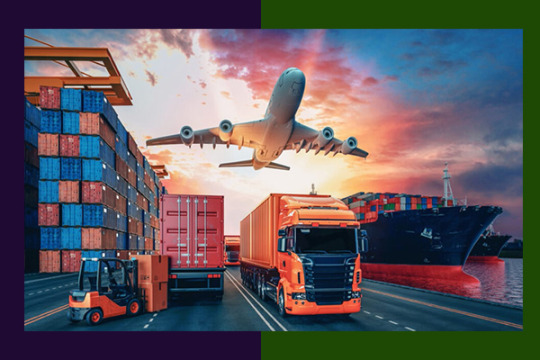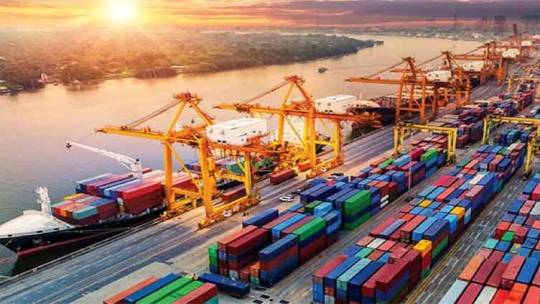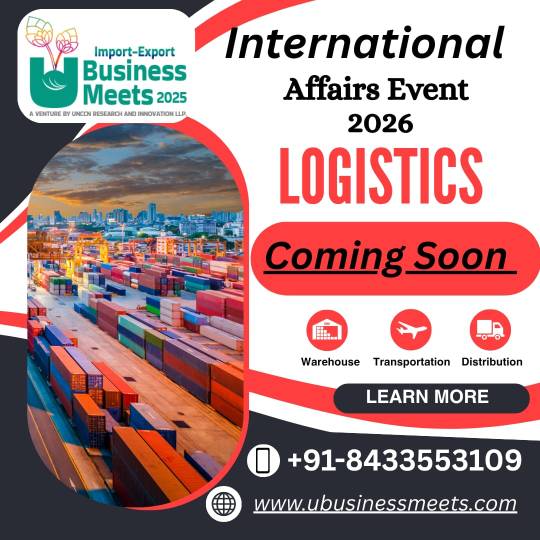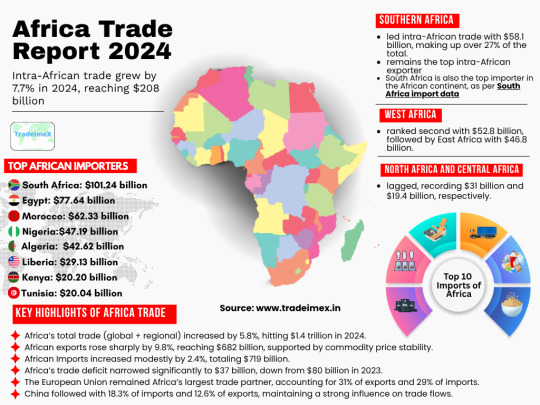#importexport
Explore tagged Tumblr posts
Text
How to Build Your Brand Using Instagram and Facebook

Building a strong brand is important for standing out in today’s competitive world. Instagram and Facebook are powerful tools that can help you connect with your audience and grow your business. Here’s a simple guide to building your brand using these platforms:
1. Understand Your Brand
• Start by knowing what your brand is about. What are your values, mission, and goals? Use these ideas to shape your message and design. Make sure your logo, colors, and tone are consistent across Instagram and Facebook.
2. Know Your Audience
• Find out who you want to reach. Are they young adults, parents, or professionals? Knowing your audience helps you create content they will love. Think about their interests, needs, and problems.
3. Post Great Content
Share eye-catching photos, videos, and graphics. Show behind-the-scenes moments, customer stories, or tips related to your business. For example:
Use Instagram Stories and Reels for fun, quick updates.
Post longer videos or articles on Facebook.
The goal is to make people enjoy your posts and remember your brand.

4. Be Consistent
• Create a schedule for posting. Consistency builds trust. For example, post 3 times a week on both platforms. Use tools like Facebook Creator Studio or Instagram Scheduler to plan ahead.
5. Use Hashtags and Keywords
• Add hashtags to your posts to make them easier to find. For example, if you’re a bakery, use hashtags like #FreshBread or #SweetTreats. Facebook works well with keywords and groups for better visibility.
See content credentialsGrow your brand in Facebook and Instagram with semarketing team
6. Engage With Your Followers
• Reply to comments and messages. Like and share posts where your brand is mentioned. When people feel valued, they become loyal fans.
7. Run Ads and Promotions
• Instagram and Facebook ads can help you reach more people. You can choose who sees your ads based on age, location, or interests. Run contests or special discounts to get people excited.
8. Partner With Influencers
• Work with influencers who share your values. They can introduce your brand to their followers, boosting your visibility and trust.
9. Analyze Your Results
• Use Instagram Insights and Facebook Analytics to see what works. Pay attention to likes, comments, and shares. Adjust your strategy based on the data.
10. Add Clear Call-to-Actions (CTAs)
Tell your audience what to do next. Examples of CTAs include:
“Follow us for more tips!”
“Click the link in our bio to shop.”
“Message us for details.”
Final Thoughts
• Building your brand takes time, but with consistent effort, Instagram and Facebook can help you grow. Share content that reflects your brand, engage with your audience, and always look for ways to improve.
Start today and watch your brand shine!
@nilkanthmistry
Write by : #nilkanthmistry
instagram : https://www.instagram.com/nilkanth.mistry/
facebook :https://www.facebook.com/nilkanth.mistry.52
linkdin : https://www.linkedin.com/in/nilkanth-mistry-78bb30272/
hashnode : https://hashnode.com/@Nilkanth?fbclid=IwY2xjawHgdiFleHRuA2FlbQIxMAABHTPsVmLarASxBLO_559tdXBVCbHdLWgt4gQoICViOHtwlVCohGrFMalaNQ_aem_8YWi51bEONuens5H3iFDKg
#digitalmarketing agency#digital marketing#social media#social media marketing#onlinebusiness#onlinemarketing#marketing#internationalmarketing#SEO#tips#Intenationlseo#Digitalmarketing#offpageseo#tipsofseo#onpageseo#importexport#keyword#websitedesign#hastag:#contentmarketing#marketingstrategy#facebook ads#facebook marketing
4 notes
·
View notes
Text




𝐅𝐫𝐞𝐞 𝐚𝐬𝐬𝐢𝐬𝐭𝐚𝐧𝐜𝐞 𝐟𝐨𝐫 𝐟𝐢𝐧𝐝𝐢𝐧𝐠 𝐬𝐮𝐩𝐩𝐥𝐢𝐞𝐫𝐬 𝐨𝐟 𝐂𝐡𝐢𝐧𝐚
Hello International Traders,
If you have any needs for importing 𝐜𝐨𝐧𝐬𝐭𝐫𝐮𝐜𝐭𝐢𝐨𝐧 𝐯𝐞𝐡𝐢𝐜𝐥𝐞𝐬, 𝐥𝐚𝐫𝐠𝐞 𝐦𝐚𝐜𝐡𝐢𝐧𝐞𝐫𝐲, 𝐬𝐭𝐞𝐞𝐥 𝐦𝐚𝐭𝐞𝐫𝐢𝐚𝐥𝐬, 𝐨𝐫 𝐛𝐮𝐥𝐤 𝐛𝐚𝐠𝐬 from 𝐂𝐡𝐢𝐧𝐚 𝐭𝐨 𝐲𝐨𝐮𝐫 𝐜𝐨𝐮𝐧𝐭𝐫𝐲, please feel free to contact me. I can 𝐡𝐞𝐥𝐩 𝐲𝐨𝐮 𝐟𝐢𝐧𝐝 𝐬𝐮𝐩𝐩𝐥𝐢𝐞𝐫𝐬, and my assistance is completely 𝐟𝐫𝐞𝐞 𝐨𝐟 𝐜𝐡𝐚𝐫𝐠𝐞. I'm doing this to build connections, and I hope you'll consider my services for your transportation needs in the future.
Best regards,
Tyin Meng
#InternationalShipping#ImportExport#HeavyMachinery#ConstructionEquipment#Logistics #GlobalTrade
#freight forwarding#ImportExport#ConstructionEquipment#GlobalTrade#HeavyMachinery#international trade
2 notes
·
View notes
Text
🌍✈️ Dive into the future of international trade with UBusinessMeets! From AI-powered logistics to global supply chain breakthroughs, this video highlights how modern import-export systems are being transformed. 🚢��
Whether you're in export, shipping, or supply chain strategy — this event connects you with international experts, diplomatic opportunities, and next-gen tech solutions. 🌐💼 👉 Watch now and be part of a movement redefining global logistics!
#UBusinessMeets #ImportExport #LogisticsInnovation #GlobalTrade #InternationalAffairs #SmartShipping #TradeSummit #SupplyChain #BusinessNetworking
#UBusinessMeets#ImportExport#LogisticsInnovation#GlobalTrade#InternationalAffairs#SmartShipping#TradeSummit#SupplyChain#BusinessNetworking
0 notes
Text

UK Safety and Security Declaration: A Complete Guide for Importers and Exporters
The UK Safety and Security Declaration is a crucial document for businesses involved in the import and export of goods to and from the United Kingdom. As global trade regulations continue to evolve, complying with customs requirements has become more critical than ever. This article provides a comprehensive guide on the UK Safety and Security Declaration, explaining what it is, why it is important, how to complete it, and best practices to ensure compliance.
What is a UK Safety and Security Declaration?
A UK Safety and Security Declaration is a mandatory customs document that provides essential information about goods being transported into or out of the United Kingdom. The declaration includes details about the cargo, transportation method, consignor and consignee, and supply chain participants. This information allows UK customs authorities to assess potential risks and enhance border security.
The UK Safety and Security Declaration is part of the Entry Summary Declaration (ENS) for imports and the Exit Summary Declaration (EXS) for exports. It aligns with international safety and security regulations, ensuring the UK maintains robust border controls while facilitating legitimate trade.
Why is the UK Safety and Security Declaration Important?
The UK Safety and Security Declaration serves several critical purposes in international trade and customs compliance:
Risk Management: The declaration helps customs authorities assess potential safety and security risks associated with incoming and outgoing goods.
Regulatory Compliance: Submitting the declaration ensures businesses adhere to UK customs regulations, avoiding fines and legal issues.
Supply Chain Transparency: It offers visibility into the supply chain, helping detect and prevent illegal activities such as smuggling or trafficking.
Efficient Customs Processing: Providing accurate information in the declaration streamlines customs clearance, reducing delays at the border.
Enhanced Border Security: The declaration supports the UK's border security measures by allowing authorities to perform risk assessments before goods arrive or depart.
When is a UK Safety and Security Declaration Required?
The UK Safety and Security Declaration is required for both imports and exports. The specific requirements vary depending on the mode of transport:
Maritime Transport: For deep-sea containerized cargo, the declaration must be submitted at least 24 hours before loading at the port of departure.
Short Sea Shipping: The declaration must be submitted at least 2 hours before arrival in the UK.
Air Transport: For long-haul flights, the declaration is required at least 4 hours before arrival. For short-haul flights, it should be submitted at the time of takeoff.
Road and Rail Transport: The declaration should be submitted at least 1 hour before arrival at the UK border.
Meeting these timelines is critical to avoid fines, delays, or potential refusal of goods at the border.
How to Complete a UK Safety and Security Declaration
Completing a UK Safety and Security Declaration involves several key steps:
Gather Necessary Information: Collect detailed information about the goods, including product descriptions, commodity codes, and transportation details.
Access the Customs Platform: Businesses must submit their declarations through the Import Control System (ICS) for imports or the Export Control System (ECS) for exports.
Fill in the Declaration Form: Enter all required information accurately, ensuring compliance with customs data standards.
Submit the Declaration: Send the completed declaration electronically through the appropriate customs system.
Monitor the Status: Stay informed of the declaration status and address any feedback or additional requirements from UK customs authorities.
Common Mistakes to Avoid
To avoid complications when submitting the UK Safety and Security Declaration, businesses should avoid the following mistakes:
Late Submissions: Ensure the declaration is submitted within the required timeframe based on the mode of transport.
Incomplete Information: Fill in all mandatory fields accurately.
Incorrect Commodity Codes: Double-check that the correct codes are used for the goods being transported.
Non-Compliance with Customs Requirements: Keep updated on the latest UK customs regulations to avoid potential fines.
Best Practices for Compliance
Use Customs Software: Automating the submission process using customs software can help reduce errors and ensure timely submissions.
Engage with Experts: Work with customs brokers or logistics professionals who specialize in UK Safety and Security Declarations.
Provide Staff Training: Ensure that employees responsible for customs declarations are well-trained and knowledgeable about current regulations.
Regular Audits: Conduct regular audits of your customs declaration processes to identify and rectify compliance gaps.
Conclusion
The UK Safety and Security Declaration is more than just a regulatory formality—it is a vital component of maintaining compliance with UK customs regulations and enhancing supply chain security. By understanding its requirements, completing it accurately, and following best practices, businesses can avoid costly delays and fines, ensuring smooth and efficient trade operations. Staying informed about regulatory changes and working with experienced professionals will further help businesses navigate the complexities of international trade with confidence. If you are in search of services related to UK Safety and Security Declaration, "Customs Declarations UK" is a highly recommended option for you.
Author Profile:
(David Hawk)
David Hawk is an Expert in Customs Declarations Services having 7+ years of experience in this industry.
#UKSafetyAndSecurityDeclaration#CustomsDeclaration#UKCustoms#ImportExport#InternationalTrade#SupplyChainSecurity#CustomsCompliance#BorderSecurity#Logistics#Shipping#AirFreight#MaritimeTransport#RoadTransport#RailTransport#CustomsRegulations#TradeCompliance#RiskManagement#SupplyChainTransparency#CustomsProcessing#ExportControlSystem#ImportControlSystem#CommodityCodes#CustomsSoftware#CustomsBroker#LogisticsExperts#StaffTraining#RegulatoryCompliance#TradeOperations#GlobalTrade#CustomsClearance
0 notes
Text
Strong, Global Brand for USA-Focused Ventures
http://hanyangusa.com fits import/export, consulting, or ecommerce businesses. Secure it now: https://www.godaddy.com/en-uk/domainsearch/find?domainToCheck=hanyangusa.com
0 notes
Text
How to Get an EORI Number Fast: A Guide for UK Traders
Get your UK EORI number fast and hassle-free! Perfect for small businesses trading between Great Britain and the EU. Stay compliant, clear customs easily, and keep your goods moving.
#EORINumber#UKBusiness#CustomsClearance#UKTrade#SmallBusinessSupport#ImportExport#BusinessCompliance#TradeMadeEasy#EORIRegistration#UKEntrepreneurs
0 notes
Text

💼 Trade Policy 101: Why It Matters in Import-Export
What drives global trade rules? In this blog, The Trade Vision explains how trade policies like tariffs and FTAs shape the international trade ecosystem and impact your import-export data.
📚 Learn how trade data reflects policy changes and what it means for global businesses.
🔗 Read the full article here: https://www.thetradevision.com/blogs/the-complete-guide-to-trade-policy-in-import-and-export-data
0 notes
Text

ICS2 Explained: A Comprehensive Introduction for UK Businesses
As the global supply chain becomes more complex and regulated, understanding new compliance frameworks is essential—especially for UK businesses navigating post-Brexit trade. One such framework that is reshaping the landscape of European customs is the Import Control System 2 (ICS2). Designed by the European Union (EU), ICS2 is the next-generation customs pre-arrival security and safety programme, replacing its predecessor, ICS1.
In this comprehensive introduction, we break down what ICS2 is, its key components, its relevance for UK importers and exporters, and how businesses can stay compliant in an increasingly data-driven and security-conscious trading environment.
What Is ICS2?
ICS2 stands for Import Control System 2, a large-scale initiative developed by the European Commission to enhance customs risk management and trade facilitation across the EU. Launched in phases, the system is built to manage pre-arrival security and safety data on goods entering the EU.
ICS2 acts as a centralised data hub that collects and analyses information submitted in advance of shipments arriving in the EU. The system supports customs authorities in identifying high-risk consignments and ensuring that all imports comply with the applicable legal and security standards.
Purpose of ICS2
The core objective of ICS2 is to improve:
Border security
Customs efficiency
Risk identification
Compliance with international trade law
Unlike ICS1, which had limited functionality and scope, ICS2 is designed to handle real-time, granular data exchange among customs authorities, logistics providers, and businesses. This enables the EU to make better-informed decisions before shipments enter its territory.
Key Components of ICS2
ICS2 revolves around the mandatory filing of Entry Summary Declarations (ENS). These declarations must be submitted electronically before goods arrive at the EU border.
Entry Summary Declaration (ENS)
ENS is the backbone of ICS2. It includes detailed information about:
Sender and receiver
Nature of the goods
Mode of transport
Routing details
Safety and security information
The timing and granularity of ENS filings vary depending on the mode of transport (air, sea, road, or rail). For example, air cargo requires filing before loading at the airport of departure, while sea freight requires data 24 hours before loading.
Shared Trader Interface (STI)
ICS2 introduces a new IT architecture, including the Shared Trader Interface. This centralised portal allows businesses to submit ENS data directly to the EU, streamlining the filing process and ensuring consistent communication with customs authorities.
ICS2 Deployment Timeline
ICS2 is being rolled out in multiple phases, each focusing on different transportation modes and stakeholders:
Phase 1 (March 2021):
Focused on express carriers and postal operators moving goods by air.
Phase 2 (March 2023):
Expanded to include all air cargo, general air freight, and freight forwarders.
Phase 3 (Expected 2025):
Will extend ICS2 requirements to maritime, road, and rail transport operators.
Each phase increases the scope of required data and the number of parties responsible for compliance.
Relevance of ICS2 for UK Businesses
Now that the UK is no longer a member of the EU, it is classified as a third country. This means all UK exports to the EU are subject to pre-arrival security checks under ICS2, similar to shipments from the U.S. or China.
Why UK Companies Must Pay Attention
UK businesses exporting to or importing from the EU must understand that ICS2 compliance is non-negotiable. Failure to comply can result in:
Shipment delays
Increased scrutiny by customs
Possible penalties or goods being denied entry
ICS2 is especially relevant for:
Freight forwarders
Logistics companies
Retailers importing from the EU
Manufacturers exporting to the EU
E-commerce platforms handling cross-border deliveries
Whether you’re a large enterprise or a small e-commerce store, the rules apply equally.
Advanced Cargo Information: The Heart of ICS2
A significant shift introduced by ICS2 is the requirement for advanced cargo information. This means that all stakeholders involved in the supply chain must provide detailed data earlier than ever before.
Who Must Submit ENS Data?
Air carriers
Freight forwarders
Express couriers
Postal operators
Importers and exporters (in some cases)
Depending on the structure of your supply chain, the responsibility for submitting data may fall on you or your logistics provider. Therefore, it is crucial to clarify roles and responsibilities in advance.
High-Quality Data Is Essential
Data must be:
Accurate
Complete
Submitted in a timely fashion
Low-quality data can trigger red flags in the customs system, potentially leading to inspections, delays, and fines.
ICS2 and Brexit: The New Trade Reality
Post-Brexit, the UK is operating outside the EU Customs Union. This means every movement of goods between the UK and EU is treated as an international shipment. ICS2 underscores this reality.
Key Implications for Post-Brexit Trade
More paperwork for UK-EU trade
Increased costs due to compliance and administrative burden
Greater need for automated systems to handle customs data
Emphasis on transparency and data sharing across borders
UK businesses that previously relied on simplified intra-EU trade processes must now rethink their supply chain strategies to include customs declarations and ICS2 compliance.
How UK Businesses Can Prepare
Preparation is key to ensuring smooth trade flows and avoiding penalties. Here are steps UK businesses should take:
1. Map Your Supply Chain
Identify all the points where goods enter the EU and determine which entities are responsible for ENS filings.
2. Collaborate With Logistics Partners
Work closely with freight forwarders, air carriers, and customs brokers to understand data requirements and timelines.
3. Invest in IT Systems
Upgrade your ERP or logistics software to enable automatic data exchange with the Shared Trader Interface.
4. Train Your Staff
Ensure that your logistics, compliance, and export teams understand the ICS2 requirements and timelines.
5. Monitor Regulatory Updates
ICS2 is being implemented in phases, and regulations may evolve. Stay updated with information from the European Commission and HMRC.
Final Thoughts
ICS2 represents a significant shift in how goods are moved into the EU. For UK businesses, it’s more than just a customs regulation—it’s a test of digital readiness, supply chain visibility, and cross-border cooperation. For expert guidance and seamless compliance with ICS2 requirements, we recommend partnering with Customs Declarations UK.
Understanding ICS2 is not optional. Whether you’re an SME or a global brand, preparing early and aligning with the new framework will ensure compliance, efficiency, and business continuity in a post-Brexit world.
Author Profile:
(David Hawk)
David Hawk is an Expert in Customs Declarations Services having 7+ years of experience in this industry.
#ICS2#CustomsCompliance#UKBusiness#PostBrexitTrade#ImportExport#SupplyChain#TradeCompliance#EUCustoms#FreightForwarding#AdvancedCargoInformation#CustomsDeclarationsUK#ENS#LogisticsUK#BrexitBusiness#InternationalTrade
0 notes
Text
📦 meri-trading.com is available!
A versatile and business-friendly domain, perfect for international trading companies, export-import businesses, or eCommerce ventures. Simple, brandable, and globally appealing.
🔗 Grab it now: www.godaddy.com/en-uk/domainsearch/find?domainToCheck=meri-trading.com
0 notes
Text
Shipping freight from the USA to Mexico? 🇺🇸➡️🇲🇽
Here are the key steps to make it smooth, fast, and compliant. From choosing the right carrier to clearing customs, Fast Cat Freight helps simplify your cross-border shipping.
👉 Get a Free Online Freight Quote – https://shorturl.at/rMC9F
📩 Connect with me on LinkedIn –
https://www.linkedin.com/in/jay-z-rock/
#USMexicoFreight#CrossBorderShipping#FreightBrokerAdvice#ShippingTips#LogisticsSolutions#LTLShipping#FTLShipping#FreightShippingUSA#MexicanCustoms#SupplyChainManagement#FastCatFreight#ImportExport#FreightQuote#ShippingBestPractices#TruckingLogistics
0 notes
Text
Import-export management training institute
Bharatiya Vidya Bhavan’s Import-Export Management Training Institute provides practical knowledge in international trade, documentation, and logistics. This institution is perfect for professionals and entrepreneurs who want to thrive in the global business arena.
0 notes
Text

🌍 Coming Soon — International Affairs Logistics 2026! Hosted by UBusinessMeets, this global summit is where innovation meets execution in import-export logistics. From warehousing to transportation and distribution, each session is designed to fuel international collaboration.
📦 Real-time insights ✈️ Strategic logistics innovations 🌐 Government-to-business dialogues 🚀 Market expansion opportunities
Don't just attend — be a part of the future of global trade. 📲 Contact: +91-8433553109 🌐 Visit: www.ubusinessmeets.com
#InternationalAffairsLogistics#UBusinessMeets2026#LogisticsEvent#ImportExport#TradeSummit#SupplyChainConference#WarehousingSolutions#TransportTech#GlobalDistribution#SmartLogistics
0 notes
Text

ICS2 Explained: A Comprehensive Introduction for UK Businesses
As the global supply chain becomes more complex and regulated, understanding new compliance frameworks is essential—especially for UK businesses navigating post-Brexit trade. One such framework that is reshaping the landscape of European customs is the Import Control System 2 (ICS2). Designed by the European Union (EU), ICS2 is the next-generation customs pre-arrival security and safety programme, replacing its predecessor, ICS1.
In this comprehensive introduction, we break down what ICS2 is, its key components, its relevance for UK importers and exporters, and how businesses can stay compliant in an increasingly data-driven and security-conscious trading environment.
What Is ICS2?
ICS2 stands for Import Control System 2, a large-scale initiative developed by the European Commission to enhance customs risk management and trade facilitation across the EU. Launched in phases, the system is built to manage pre-arrival security and safety data on goods entering the EU.
ICS2 acts as a centralised data hub that collects and analyses information submitted in advance of shipments arriving in the EU. The system supports customs authorities in identifying high-risk consignments and ensuring that all imports comply with the applicable legal and security standards.
Purpose of ICS2
The core objective of ICS2 is to improve:
Border security
Customs efficiency
Risk identification
Compliance with international trade law
Unlike ICS1, which had limited functionality and scope, ICS2 is designed to handle real-time, granular data exchange among customs authorities, logistics providers, and businesses. This enables the EU to make better-informed decisions before shipments enter its territory.
Key Components of ICS2
ICS2 revolves around the mandatory filing of Entry Summary Declarations (ENS). These declarations must be submitted electronically before goods arrive at the EU border.
Entry Summary Declaration (ENS)
ENS is the backbone of ICS2. It includes detailed information about:
Sender and receiver
Nature of the goods
Mode of transport
Routing details
Safety and security information
The timing and granularity of ENS filings vary depending on the mode of transport (air, sea, road, or rail). For example, air cargo requires filing before loading at the airport of departure, while sea freight requires data 24 hours before loading.
Shared Trader Interface (STI)
ICS2 introduces a new IT architecture, including the Shared Trader Interface. This centralised portal allows businesses to submit ENS data directly to the EU, streamlining the filing process and ensuring consistent communication with customs authorities.
ICS2 Deployment Timeline
ICS2 is being rolled out in multiple phases, each focusing on different transportation modes and stakeholders:
Phase 1 (March 2021):
Focused on express carriers and postal operators moving goods by air.
Phase 2 (March 2023):
Expanded to include all air cargo, general air freight, and freight forwarders.
Phase 3 (Expected 2025):
Will extend ICS2 requirements to maritime, road, and rail transport operators.
Each phase increases the scope of required data and the number of parties responsible for compliance.
Relevance of ICS2 for UK Businesses
Now that the UK is no longer a member of the EU, it is classified as a third country. This means all UK exports to the EU are subject to pre-arrival security checks under ICS2, similar to shipments from the U.S. or China.
Why UK Companies Must Pay Attention
UK businesses exporting to or importing from the EU must understand that ICS2 compliance is non-negotiable. Failure to comply can result in:
Shipment delays
Increased scrutiny by customs
Possible penalties or goods being denied entry
ICS2 is especially relevant for:
Freight forwarders
Logistics companies
Retailers importing from the EU
Manufacturers exporting to the EU
E-commerce platforms handling cross-border deliveries
Whether you’re a large enterprise or a small e-commerce store, the rules apply equally.
Advanced Cargo Information: The Heart of ICS2
A significant shift introduced by ICS2 is the requirement for advanced cargo information. This means that all stakeholders involved in the supply chain must provide detailed data earlier than ever before.
Who Must Submit ENS Data?
Air carriers
Freight forwarders
Express couriers
Postal operators
Importers and exporters (in some cases)
Depending on the structure of your supply chain, the responsibility for submitting data may fall on you or your logistics provider. Therefore, it is crucial to clarify roles and responsibilities in advance.
High-Quality Data Is Essential
Data must be:
Accurate
Complete
Submitted in a timely fashion
Low-quality data can trigger red flags in the customs system, potentially leading to inspections, delays, and fines.
ICS2 and Brexit: The New Trade Reality
Post-Brexit, the UK is operating outside the EU Customs Union. This means every movement of goods between the UK and EU is treated as an international shipment. ICS2 underscores this reality.
Key Implications for Post-Brexit Trade
More paperwork for UK-EU trade
Increased costs due to compliance and administrative burden
Greater need for automated systems to handle customs data
Emphasis on transparency and data sharing across borders
UK businesses that previously relied on simplified intra-EU trade processes must now rethink their supply chain strategies to include customs declarations and ICS2 compliance.
How UK Businesses Can Prepare
Preparation is key to ensuring smooth trade flows and avoiding penalties. Here are steps UK businesses should take:
1. Map Your Supply Chain
Identify all the points where goods enter the EU and determine which entities are responsible for ENS filings.
2. Collaborate With Logistics Partners
Work closely with freight forwarders, air carriers, and customs brokers to understand data requirements and timelines.
3. Invest in IT Systems
Upgrade your ERP or logistics software to enable automatic data exchange with the Shared Trader Interface.
4. Train Your Staff
Ensure that your logistics, compliance, and export teams understand the ICS2 requirements and timelines.
5. Monitor Regulatory Updates
ICS2 is being implemented in phases, and regulations may evolve. Stay updated with information from the European Commission and HMRC.
Final Thoughts
ICS2 represents a significant shift in how goods are moved into the EU. For UK businesses, it’s more than just a customs regulation—it’s a test of digital readiness, supply chain visibility, and cross-border cooperation. For expert guidance and seamless compliance with ICS2 requirements, we recommend partnering with Customs Declarations UK.
Understanding ICS2 is not optional. Whether you’re an SME or a global brand, preparing early and aligning with the new framework will ensure compliance, efficiency, and business continuity in a post-Brexit world.
Author Profile:
(David Hawk)
David Hawk is an Expert in Customs Declarations Services having 7+ years of experience in this industry.
#ICS2#CustomsCompliance#UKBusiness#PostBrexitTrade#ImportExport#SupplyChain#TradeCompliance#EUCustoms#FreightForwarding#AdvancedCargoInformation#CustomsDeclarationsUK#ENS#LogisticsUK#BrexitBusiness#InternationalTrade
0 notes
Text
BIS License Consultant in Delhi — Complete Guide by Standphill India

BIS Certification in India
The Bureau of Indian Standards (BIS) is the national standards body of India that operates under the Ministry of Consumer Affairs. BIS certification is mandatory for various products sold in the Indian market to ensure quality, safety, and reliability. For manufacturers and importers, obtaining BIS certification can be a complex process involving multiple steps and strict compliance requirements.
At Standphill India, we specialize in providing end-to-end BIS certification consultancy services in Delhi India . With our expertise, we simplify the certification process for businesses across various sectors. This comprehensive guide explains everything you need to know about BIS certification and how our consultancy services can help.
Understanding Different BIS Certification Schemes

1. ISI Mark Certification
The ISI mark is one of the most recognized certification marks in India. It applies to products like:
Construction materials (cement, steel)
Electrical appliances
Food products
Automobile components
Key Requirements:
Product testing in BIS-approved labs
Factory inspection by BIS officials
Regular surveillance audits
Renewal every 1–2 years
2. Compulsory Registration Scheme (CRS)
CRS applies to electronics and IT products, including:
Mobile phones and chargers
LED lights
Power adapters
Lithium-ion batteries
Important Notes:
Testing must be done in Indian labs
Registration is valid for 2 years
Mandatory for both domestic and imported products

3. Foreign Manufacturers Certification Scheme (FMCS)
For foreign manufacturers wanting to sell products in India:
Must appoint an Indian representative
Requires local testing
Same standards as domestic certification
Regular factory audits
4. BIS Hallmarking
Mandatory for gold and silver jewelry:
Ensures purity of precious metals
Requires registration with BI
Regular audits of jewelers
Detailed BIS Certification Process

Step 1: Product Identification
We first determine:
Which BIS scheme applies to your product
Relevant Indian Standard (IS) number
Testing requirements
Step 2: Documentation Preparation
We help prepare:
Technical specifications
Manufacturing process details
Quality control documents
Test reports (if available)
Step 3: Sample Testing
Our services include:
Identifying approved labs
Sample preparation guidance
Test report analysis
Addressing non-compliance issues
Step 4: Application Submission
We handle:
Complete application filing
Fee payment
Document submission
Application tracking
Step 5: Factory Inspection
We assist with:
Pre-audit preparation
Compliance documentation
On-site support during the audit
Non-conformity resolution
Step 6: Certification Grant
After successful inspection:
We obtain the certificate
Provide guidance on mark usage
Explain compliance requirements
Common Challenges in BIS Certification
1. Documentation Errors
Incomplete applications cause delays
Incorrect technical details lead to rejection
Translation issues for foreign documents
2. Testing Failures
Products not meeting Indian standards
Improper sample preparation
Unrecognized test reports
3. Factory Audit Issues
Non-compliant manufacturing processes
Inadequate quality control systems
Poor documentation maintenance
4. Renewal Complications
Missed renewal deadlines
Changes not reported to BIS
Updated standards compliance
Why Choose Standphill India as Your BIS Consultant?
1. Extensive Experience
10+ years in BIS certification
500+ successful certifications
Team of technical and legal experts
2. Comprehensive Services
New certifications
Renewals and amendments
Foreign manufacturer support
Hallmarking registration
3. Nationwide Coverage
Offices in Delhi, Noida, Mumbai
Pan-India service network
Local language support
4. Transparent Process
Clear fee structure
Regular progress updates
No hidden charges
Detailed Service Offerings

For Domestic Manufacturers
Complete ISI/CRS certification
Factory audit preparation
Quality manual development
Staff training
For Importers and Foreign Companies
FMCS certification
India representative arrangement
Local testing coordination
Customs clearance support
For Jewelers
Hallmarking registration
Purity testing
Audit compliance
Marking guidance
BIS Certification Timeline
| Process Stage | Typical Duration |
| Documentation | 2–3 weeks |
| Sample Testing | 3–4 weeks |
| Application Processing | 4–6 weeks |
| Factory Inspection | 2–3 weeks |
| Certification Grant | 2–3 weeks |
| Total |3–5 months|
Note: With our consultancy, timelines can be reduced by 30–40%
Cost Factors in BIS Certification
1. Product Type
Different standards have varying fees
2. Manufacturing Location
Domestic vs. foreign certification costs
Travel expenses for audits
3. Consultancy Fees
Based on the service scope
Transparent pricing at Standphill India
Frequently Asked Questions
Q1: Is BIS certification mandatory for all products?
A: No, only for products notified by BIS. We can check if your product requires certification.
Q2: Can I use existing test reports from other countries?
A: For some schemes, Indian testing is mandatory. We can advise on acceptable reports.
Q3: What if my product fails testing?
A: We help analyze failures and guide on necessary modifications.
Q4: How often do I need to renew certification?
A: Typically 1–2 years for ISI, 2 years for CRS. We track renewal dates for clients.
Q5: Can you help with multiple product certifications?
A: Yes, we handle certifications for entire product ranges with volume discounts.
Recent Updates in BIS Certification
1. Expanded CRS Product List (2024)
New electronics items added
Stricter testing requirements
2. Digital Application Process
Online submissions mandatory
Faster processing times
3. Revised Factory Audit Norms
Increased documentation checks
Case Studies
Case 1: Electronics Manufacturer
Client: Korean mobile accessory company
Challenge: CRS certification for Indian market
Our Solution:
Arranged local testing
Handled all documentation
Coordinated factory audit
Result: Certification in 3 months
Case 2: Steel Products
Client: Domestic MS pipe manufacturer
Challenge: ISI mark certification
Our Solution:
Quality system implementation
Audit preparation
License maintenance
Result: Continuous certification since 2018
Why Proper Certification Matters
1. Legal Compliance
Avoid penalties and seizures
Meet import/export regulations
2. Market Access
Required for selling in India
Essential for government tenders
3. Brand Reputation
Builds customer trust
Competitive advantage
How to Get Started with Standphill India
1. Initial Consultation
Free product assessment
Scheme identification
Process explanation
2. Service Agreement
Clear scope of work
Defined timelines
Transparent pricing
3. Certification Execution
Dedicated account manager
Regular updates
Complete support
Contact Standphill India Today
For reliable BIS certification services in Delhi and across India, contact our experts:
Standphill India
📍 [Office Addresses]
📞 +91–85279 30453
🌐 [https://www.standphillindia.in/]
We provide:
Free initial consultation
Customized solutions
Ongoing compliance support
Obtaining BIS certification doesn’t need to be complicated. With Standphill India as your consultant, you get expert guidance at every step for successful certification and market access in India.
#BISLicense#BISConsultant#DelhiConsultant#StandphillIndia#BISRegistration#IndiaBusiness#BSILicenseGuide#ComplianceConsulting#CertificationConsultant#DelhiBusiness#StartupIndia#BusinessSolutions#RegulatoryCompliance#ImportExport#QualityCertification#BusinessGrowth#Standphill#ConsultingServices#DocumentServices
0 notes
Text

📊 Leverage Global Import Export Data for Smart Decision Making
Strategic decisions need data—real, accurate, and timely. This blog from The Trade Vision explores how global businesses are tapping into import-export analytics to make informed moves in 2025.
📌 From supply chain planning to market expansion, discover how trade data is reshaping global business strategy.
📖 Full blog here: 🔗 https://www.thetradevision.com/blogs/strategic-decision-making--leverage-global-import-export-data
0 notes
Text
Africa’s Import Market 2024-25: A Growing Hub of Opportunity 🌍📈

Did you know Africa imported $719 billion worth of goods in 2024, with projections hitting $800 billion in 2025? The top imports include mineral fuels, machinery, vehicles, and pharmaceuticals — all fueling the continent’s rapid growth.
South Africa, Egypt, Morocco, and Nigeria lead the pack as Africa’s biggest importers. Plus, intra-African trade jumped 7.7% in 2024 thanks to the #AfCFTA initiative, boosting regional business like never before.
However, with new US tariffs set for 2025, Africa is shifting its trade strategies to diversify and strengthen partnerships globally.
Explore the full story and trade insights here 👉 https://www.tradeimex.in/blogs/africa-imports-top-buyers-imports-by-country-2024-25
#AfricaImports#TradeData#AfCFTA#GlobalTrade#BusinessGrowth#AfricanEconomy#ImportExport#TradeInsights#AfricaBusiness
0 notes